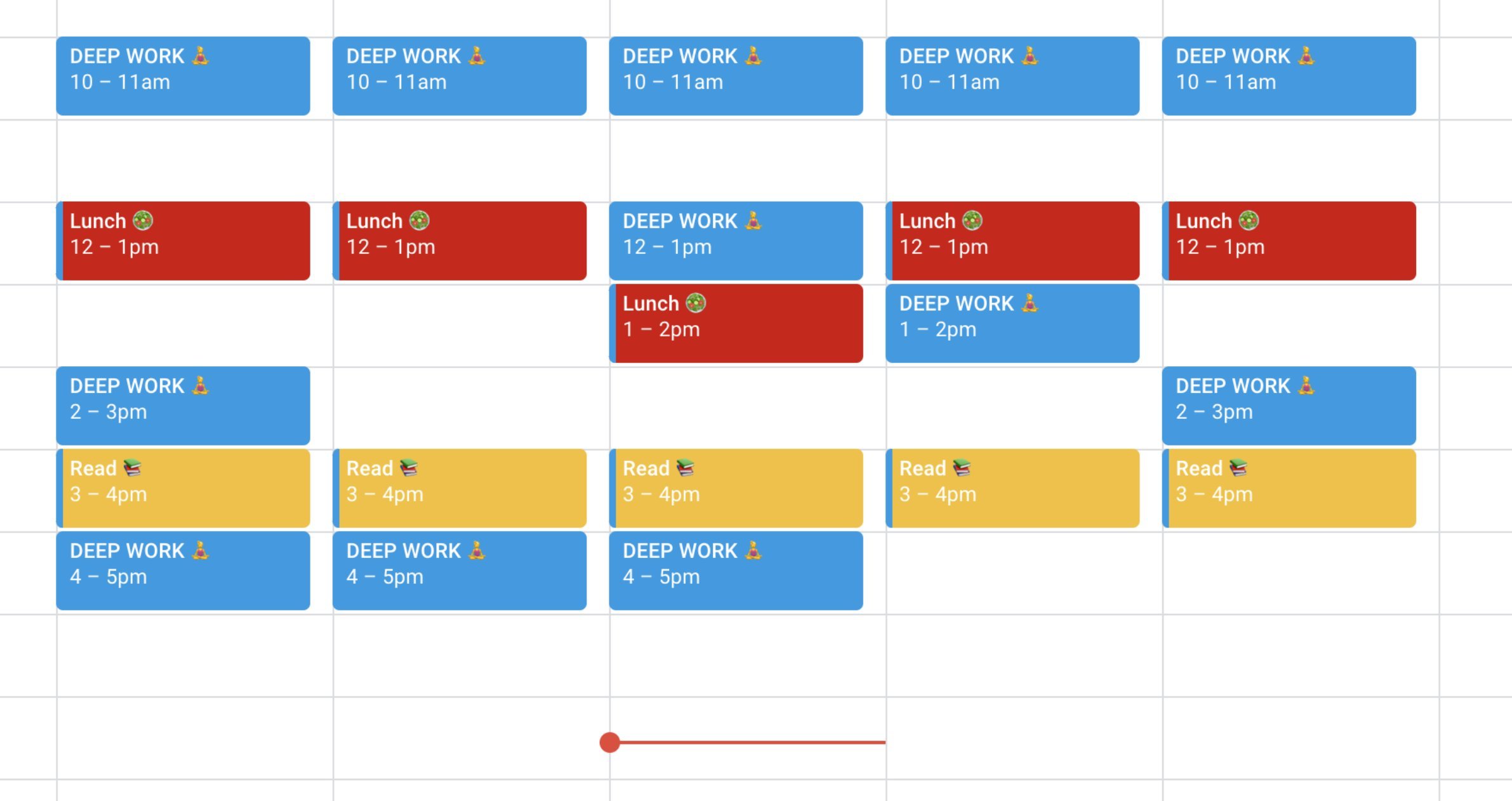Why you need to adopt “Slow Productivity” if you want to grow as a founder
Do you know what the most successful founders have in common? They're all adopting "Slow Productivity."
This principle actually comes from one of the best books I've ever read:
It’s called Slow Productivity by Cal Newport.
[rant] I believe the end of non-fiction books is nearly here when we shift more and more to short-form content such as blog posts or reading with an app like this since you’ll basically learn the valuable nuggets in a shorter time period [/rant]
But yeah, this book is different.
This was worth my time.
One of the better books I’ve read in 2024:
— Mike Strives (@mikestrives) June 12, 2024
Slow Productivity by Cal Newport.
→ Productivity isn’t about going faster
→ Smart founders are “lazy”
My 5 takeaways from the book:
1. Seasonal Productivity
Alternate between periods of intensity and rest. Work hard for 2 or 3… pic.twitter.com/7MMfEzV3dH
It basically teaches you that productivity isn’t about going faster and harder.
All the smart and successful founders are actually “lazy” and adopt “Slow Productivity”.
Here are my takeaways from the book and this framework.
1. Seasonal Productivity
Alternate between periods of intensity and rest. Work hard for 2 or 3 months and then rest for 1-2 months. This will spark creativity, enhance your productivity, and, most importantly, prevent you from burning out.
Of course, you don’t have to think in months.
To be honest, I’m not doing it either.
But, I do adopt the “seasonal productivity” on a micro level, actually.
So, what I do each day is divide my day into “deep work” blocks and “rest” blocks.
Check my actual calendar here:
I talk about my “deep work” blocks in this vlog as well:
During the “deep work” blocks, you’ll see me sitting (or standing) at my desk, with my headphones on, listening to some focus music (brain fm or these kinds of YouTube videos), and going all-in on my to-do list.
In the “rest” hours in-between, you’ll see me consuming content for inspiration, or walking outside, or working out (like running), or drinking a coffee with a buddy of mine, or doing some kind of creative work without pressure.
And man, this was life-changing.
Here’s how you can do it:
Start your day creating a small to-do list of 3-5 items you have to do
Block out “deep work” hours (preferably 3 blocks of 1 hour)
Block out “rest” time
This would be your small “seasonal productivity” version of the concept from the book.
Now, if you do want to take the actual concept from the book, you could:
Work 2-3 months from home or your office
Take “rest” for 1 month by going to another place, city, or country
Block your calendar with non-work-related stuff such as hiking, surfing, traveling, or whatever.
Again, it’s a bit rigorous, but it might help you become more productive.
2. Don’t push, but pull!
If you feel unproductive, it’s likely because you "push" work onto your to-do list. You can avoid this by adopting a pull-based to-do list instead: only take on more tasks when you're ready.
Here’s how you can do it:
Divide your project list into, what Cal names a "holding tank" (but it’s basically a place where you store all of your thoughts, ideas, etc.) and "active" sections
Limit active projects to a maximum of 3 (focus!)
Pull a new project from the “holding tank” only when you complete one of the active projects
This prevents overload and keeps you focused on what matters most.
It’s actually what I do with my self-proclaimed “N framework.”
I’m using Notion to just store all of my thoughts, ideas, and future tasks. And I only “pull” the tasks I want to work on today and I don’t look at the backlog of all the other things I “could do”. This helps me stay sane, focused, and less stressed.
Writing it all down in my Notion does the trick because I know it’s there, I don’t have to think about it, and I know I’ll find it later on when the time is ready.
3. Don’t give yourself unlimited time
Well, this sounds counter-intuitive, when we talk about “Slow productivity’, right?
It’s actually not.
To actually be productive and maximize your outcomes, you have to obsess over quality, not quantity. You have to embrace spending hours of extra work to make small improvements, without being too much of a perfectionist.
Here’s how:
Set a clear and tangible deadline
Focus on creating something “good enough”
Get it out there, wait for feedback to roll in
Improve later on
Remember, progress is what matters, not perfection.
Or, like one of my favovorite quotes states:
““Waiting for perfection is never as smart as making progress””
Let that sink in.
4. Create a super team around you
You’re not Superman, you can’t do it alone.
If you want to produce higher quality, in less time, you have to build your A-team.
Increase the stakes and elevate the quality of your output by inviting others to invest:
Time
Money
Resources
This will also build accountability: the drive to avoid disappointing them will push you to deliver your best work.
5. Create systems
You know what has the highest cognitive load? Working on one-time tasks. One-time tasks are actually awful because you need to decide why, when, and how to do them.
You can easily avoid this by turning repeating tasks into systems.
Create systems for tasks by defining:
What to do
How to do it
When to do it
And ask yourself this with every single one-time task:
Am I the right person to do it?
If not, it’s very simple: automate, delegate, or simply eliminate.
Create these systems and rituals to cut daily micro decisions and focus on what matters.



